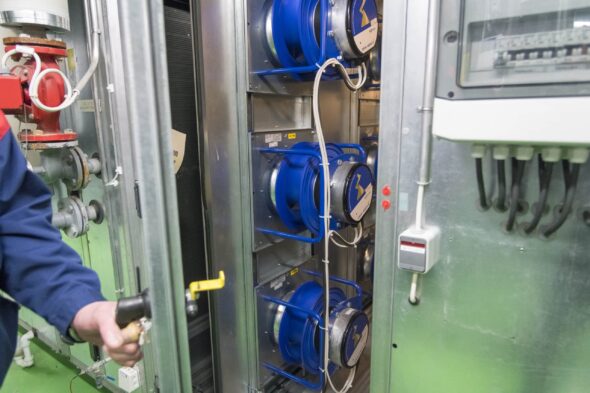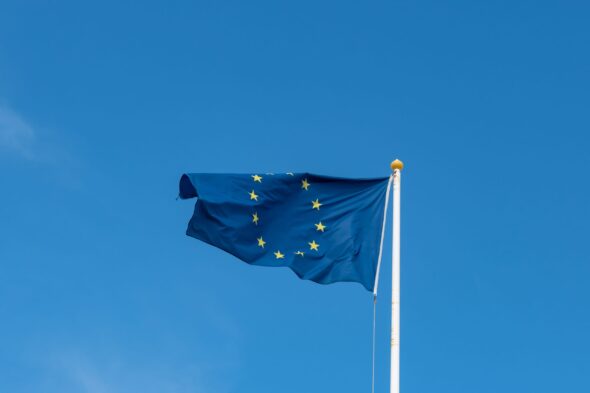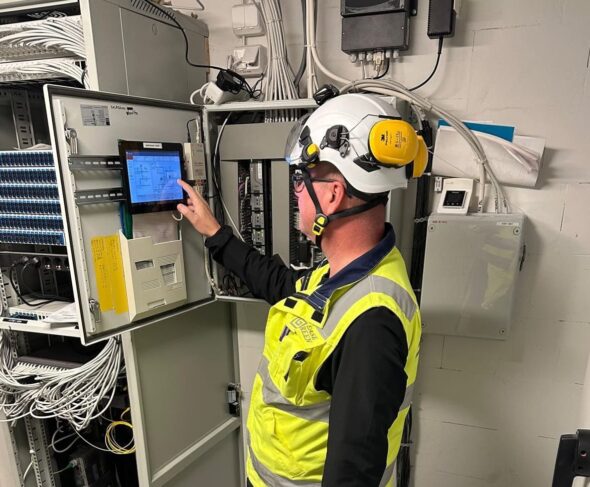LeaseGreen’s Hiilisuora webinar today brought together Finland’s top experts from the real estate investment and climate sector. The idea was to get fresh insights on how the climate trend will change business in 2021 and beyond.
The presentations outlined a very rapid change that cuts across the business world. Reducing climate emissions and corporate responsibility have moved from rhetoric to practice. For real estate investors, there are win-win situations where the same measures improve both the bottom line and the environment. This disruption requires property owners to be alert and responsive. The frontrunners reap the rewards and the laggards get into trouble.
In his opening remarks, Reima Rytsölä (pictured), Executive Vice President and Head of Investments at Varma, described how climate change is affecting investors’ lives.
“In short, very big indeed. The change has been rapid. Just two or three years ago, we had to justify Varma’s climate targets separately. We were asked why we were focusing on a side agenda when our legal mandate was to invest safely and profitably. My answer was: that’s why.”
In other words, responsibility now means safe and profitable investment. According to Rytsälä, climate change has a direct impact on the value of wealth and its allocation. Varma’s goal is a carbon-free portfolio by 2035.
“This is also risk management: we need to take careful account of how different assets retain their value,” Rytsölä said.
He pointed out that there are other aspects of the carbon footprint of buildings besides energy efficiency, some of which remain hidden. For example, concrete accounts for 8% of global climate emissions. It is essential to think about building conversions and how to extend the life cycle of buildings.
Tesla’s value mirrors the megatrend’s power
According to Varma’s Rytsälä, it has a big impact on climate action when investors in different countries have the same goal and coalitions and alliances are formed in the sector. Capacities are different in different parts of the planet, but change is rapid and moving in the same direction everywhere.
“The Nordic countries were ahead for a long time. Central European investors are also very aware. The United States was a long time behind, but in the last two or three years public pension funds there have also strongly embraced climate issues,” Rytsölä said. Varma has international investments in the UK, France, Germany, Sweden and other countries.
“A good example of a general megatrend is the soaring share price of electric car maker Tesla. Tesla is worth more than the rest of the automotive industry combined.”
According to Rytsölä, responsibility is reflected in a very straightforward way in the flow of real estate investments. One example is the popularity of environmental certificates.
“In recent years, foreign real estate investors have become increasingly interested in Finland, especially in prime properties. For these operators, certificates are very important. The further away from home they operate, the more important these things are.”
International climate work takes big steps forward
Oras Tynkkynen, Senior Advisor at Sitra and long-time energy and climate expert, participated in the webinar from Brussels. He said global efforts to reduce greenhouse gases could make surprisingly rapid progress.
“For a long time it can feel like nothing is happening. Then you can go forward with a big bang. That’s what it looks like now, as China, like many others, published its carbon neutrality target. If and when the US sets its own timetable, 2/3 of the world’s emissions will already be within the zero target. The trend is non-linear.”
In his presentation, Matti Kahra, a leading energy expert at EK, described how new green values are spreading in companies.
“Carbon neutrality and the 1.5 degree target have become a common reference point to work towards. Action is spreading throughout the value chain: large companies are requiring emissions calculations for the whole supply chain, with the impact reaching SMEs. Investors are also demanding that climate risks are addressed,” explained Kahra.
One of the key factors, in Kahra’s view, is the price of emission allowances in the EU. Currently, the price is at a record high of €35. Forecasts suggest that the price will rise to €70-80 in the next few years.
“The price has to go up, because it drives companies to invest in emission reductions. This has a crucial impact on their profitability and business.”
Kahra pointed out that an emissions trading scheme is also being set up in China. It will be the largest in the world.
Climate targets will remain a dream if buildings are not improved
Jonni Ahonen and Essi Boije af Gennäs, directors of LeaseGreen, shared their views on how sustainability will change its shape in the real estate sector in 2021.
“The field is changing very quickly. The last five years have seen a big change. It used to be pretty much just opex. People expected quick profits at zero cost and paid less attention to property conditions. ESCO contracts played a key role,” said Boije af Gennäs.
He said that energy projects are now seen primarily as enablers. Carbon neutrality is of broad interest, as are the conditions of buildings and the life cycle of buildings. ESCO projects have faded.
In his speech, Jonni Ahonen predicted that the carbon footprint will become a standard tool for implementing real estate investors’ strategies.
“If an investor owns a large number of buildings, without improvements, it is not possible to meet ambitious sustainability targets. Energy efficiency is often the last lever to be pulled when everything else is in order.”
Unlike before, energy use solutions for individual buildings will also be assessed through a comprehensive set of strategic criteria.
“In 2021, the real estate sector will open up potential that has not fit into the old decision frames. Above all, we are now thinking about strategic benefits in addition to opex benefits.”
Legislation to reduce greenwashing and clarify rules
At the end of the webinar, the impact of regulation was discussed.
“I personally believe in market self-regulation, but regulation plays a big role in setting the target. Carbon neutrality was an impossible idea five years ago, but now quite a lot of companies are striving for it,” said Reima Rytsölä of Varma.
According to Rytsölä, greenwashing is still common in the industry. Common terms and conditions bring clarity and help investors and other players to move forward.
Varma has its own criteria for measuring the responsibility of its partners, Rytsölä said.
“However, it is not a precondition for cooperation. I can see that explicit exclusion criteria are not reasonable at this stage.”
Oras Tynkkynen described how climate work in society is usually driven by the tides of business and policy makers. A lot is happening at EU level. In the past, the EU Parliament pushed ahead with its own hands, but now the Commission has joined in. As a result, the EU is much better placed to make progress on climate issues.
“Of course, there is a diverse group of member states. There are pioneers like Finland and Denmark, and then there is Poland, for example, which has been reluctant. The slow reaction is of course understandable in a country whose economy is almost entirely based on coal. But it has to be said that in Poland wind energy has taken off and there is a new way of talking about electric cars.”












